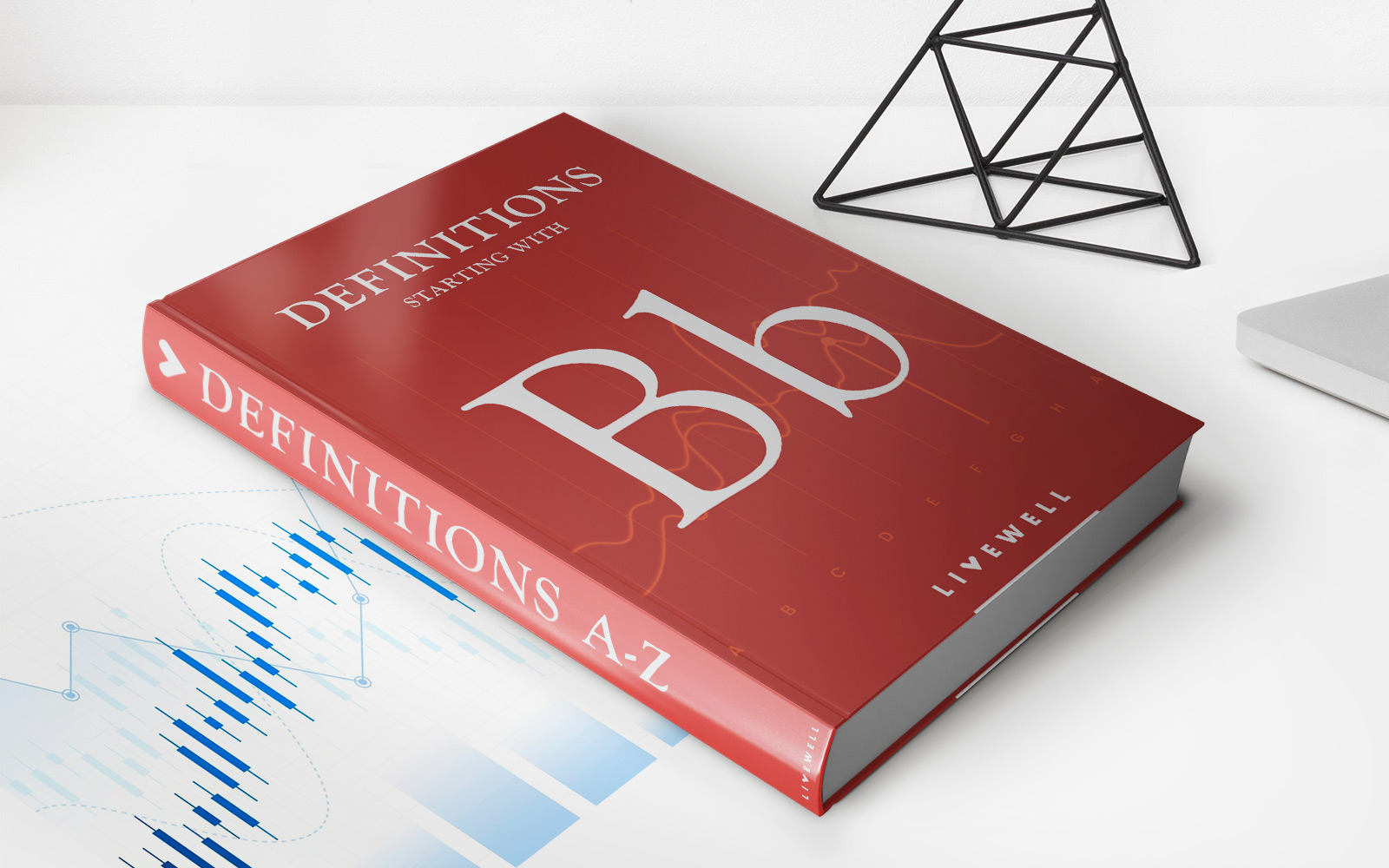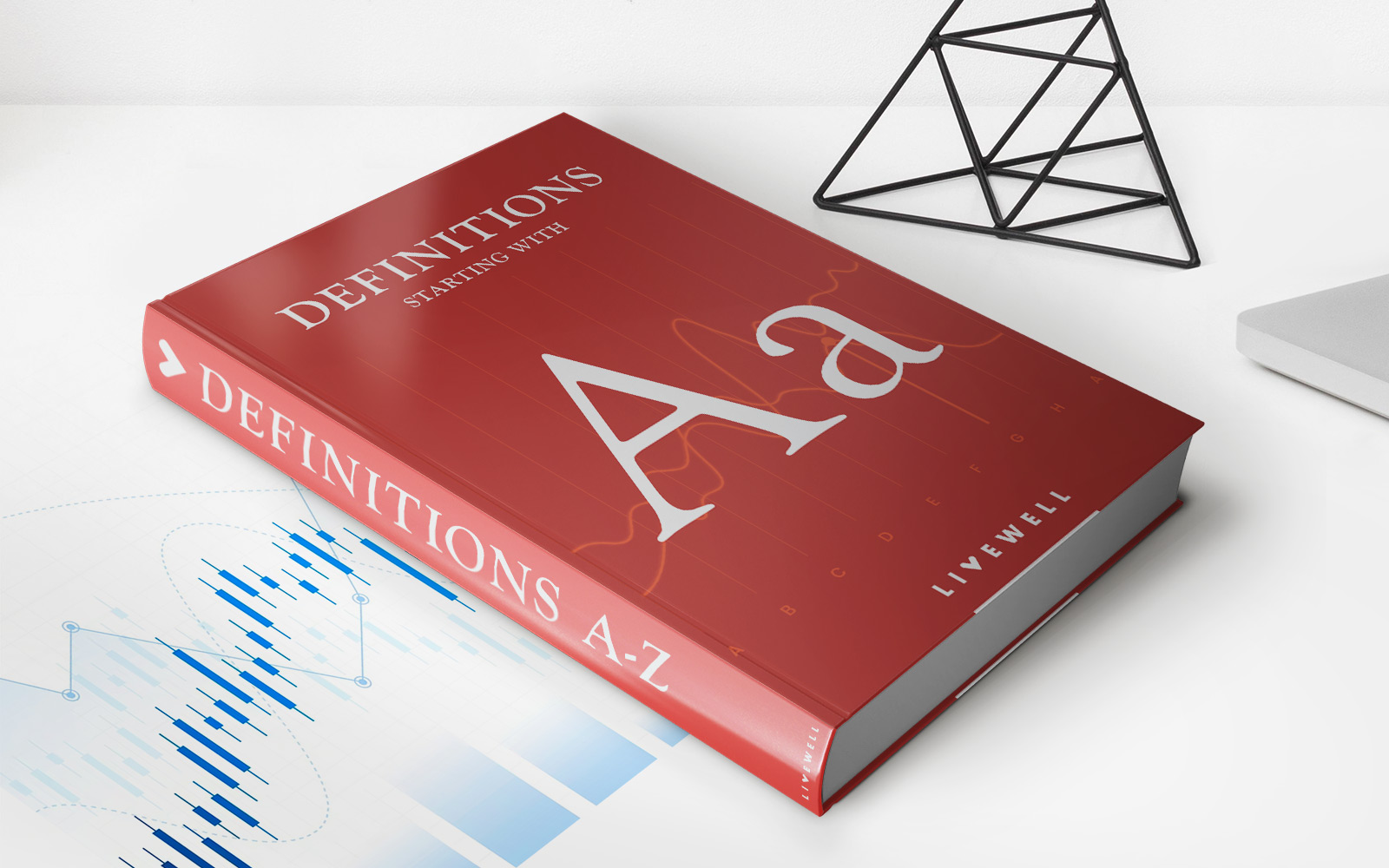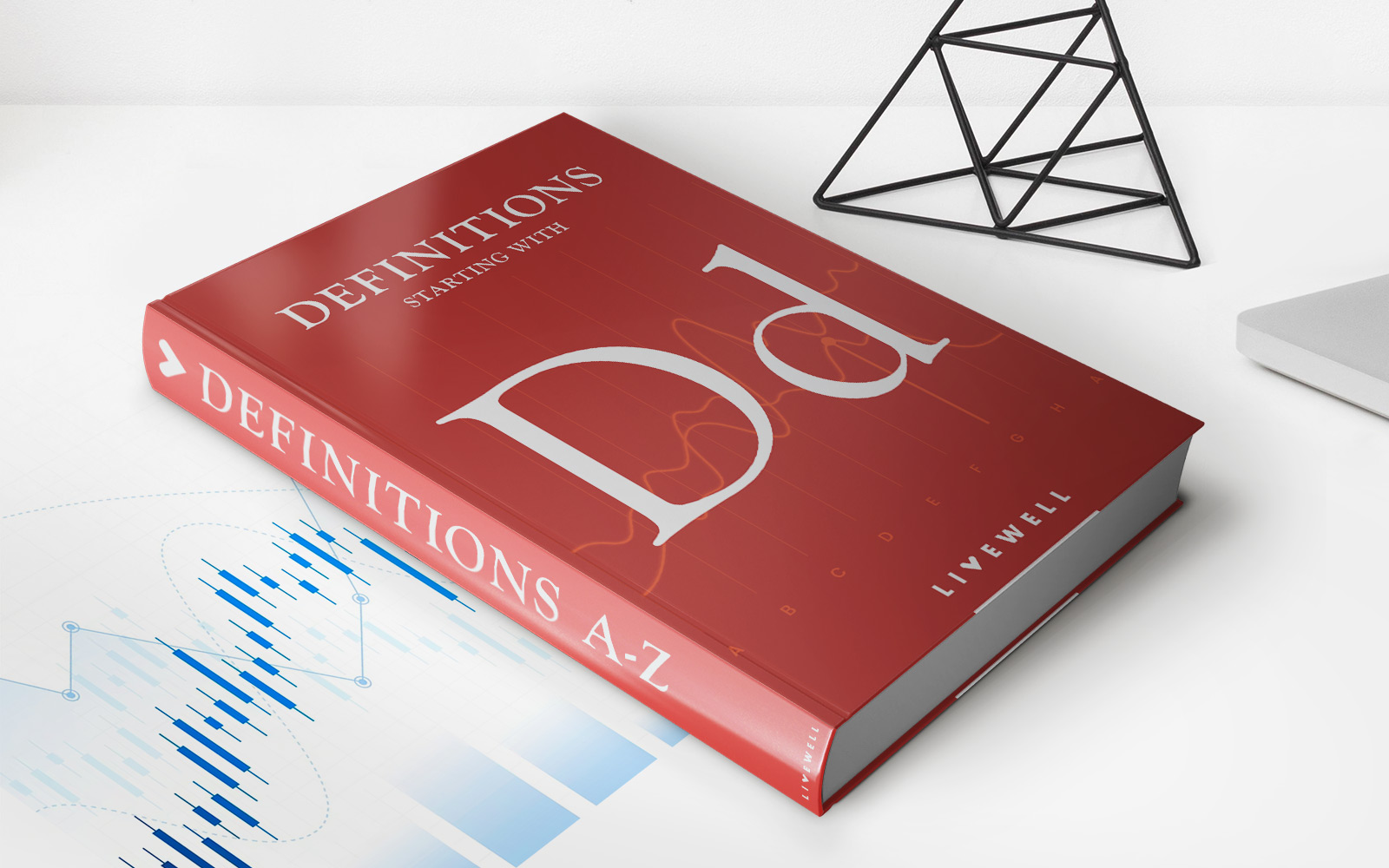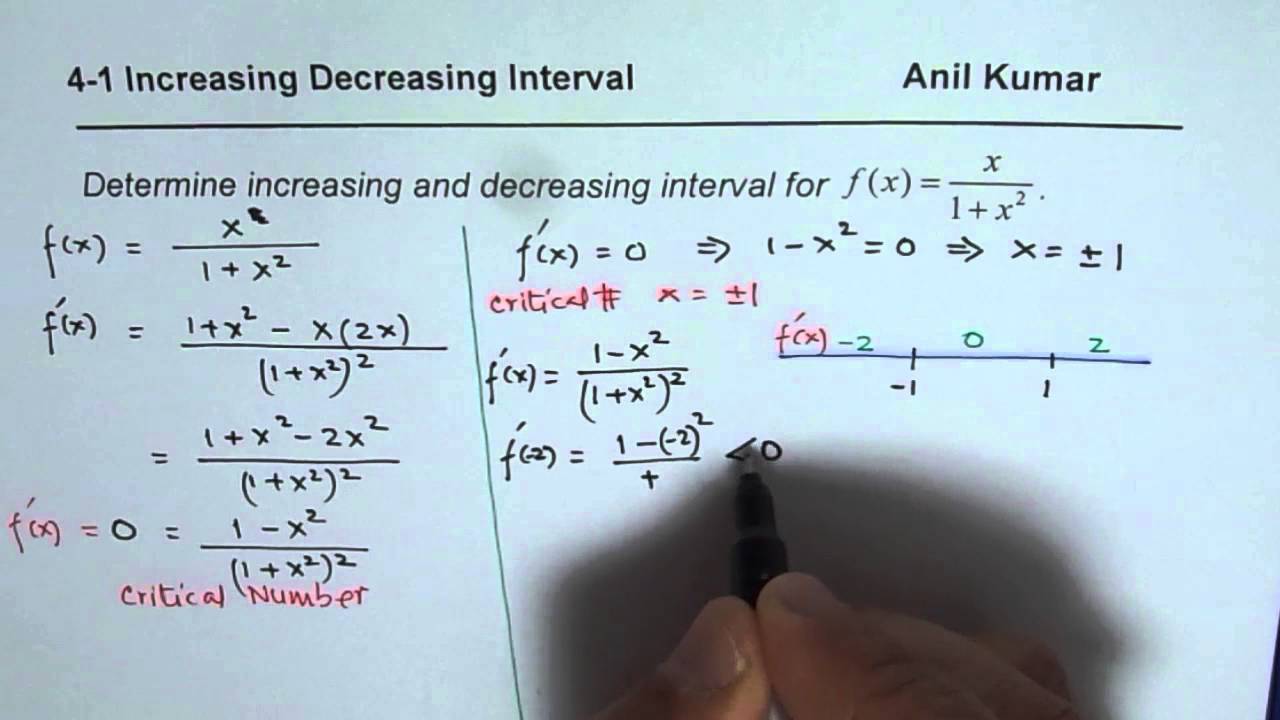

Finance
How Is Title Insurance Calculated?
Modified: December 30, 2023
Learn how title insurance is calculated in the finance industry. Understand the factors that affect the cost and make an informed decision for your property investment.
(Many of the links in this article redirect to a specific reviewed product. Your purchase of these products through affiliate links helps to generate commission for LiveWell, at no extra cost. Learn more)
Table of Contents
Introduction
Welcome to the world of title insurance! Buying a home is one of the most significant financial transactions most people will make in their lifetime. To protect this investment, it is crucial to understand the concept of title insurance.
When purchasing a property, you want to ensure that you have a clear and marketable title. However, there are instances where issues can arise that may affect your ownership rights. These issues can include past liens, undisclosed heirs, errors in public records, or even fraud.
This is where title insurance comes into play. Title insurance is a specialized type of insurance that provides protection against potential title defects or claims. It serves as a safeguard, shielding you from financial loss and legal complications arising from any defects in the title.
By obtaining title insurance, you are essentially purchasing peace of mind. It ensures that you have a secure ownership stake in the property, unaffected by any hidden risks.
In this article, we will delve deeper into understanding how title insurance is calculated and the factors that influence its cost. We’ll explore the various elements that impact the premium calculation, such as the property value, location, type of policy, underwriting process, insured amount, and endorsements. We will also examine any discounts or rate calculations that may be applicable.
By the end of this article, you will have a clear understanding of how title insurance premiums are determined and how you can make informed choices when acquiring a policy. So, let’s get started!
What is Title Insurance?
Title insurance is a form of insurance that protects property owners and lenders from financial loss or legal disputes related to the ownership of a property. Unlike other types of insurance that focus on future events, title insurance provides coverage for past events or issues that may affect the property’s title.
When you purchase a property, a title search is conducted to uncover any potential issues with the property’s title. This search examines public records, such as deeds, mortgages, and court documents, to determine if there are any claims or liens against the property or if there are any ownership disputes.
However, even with a thorough title search, there may be hidden defects or undiscovered issues that can emerge later on. These defects can include errors in public records, undisclosed heirs, forgeries, or even fraud. If a defect is discovered, it can result in legal disputes, costly litigation, and potential loss of ownership.
This is where title insurance steps in. A title insurance policy provides protection to the property owner and the lender against any unforeseen issues that may arise from the title’s past. The insurance company will cover legal fees, court costs, and any financial losses incurred as a result of a covered claim.
There are two types of title insurance policies: Owner’s policy and Lender’s policy. The owner’s policy protects the property owner’s interests, while the lender’s policy protects the lender’s interests in case the property is being financed. In most cases, if you are obtaining a mortgage, the lender will require you to purchase a lender’s policy, but it is advisable to also consider an owner’s policy to protect your own interests.
It’s important to note that title insurance is a one-time premium paid at the time of property purchase and continues to provide coverage for as long as you own the property. This means that you have coverage even if an issue from the past arises years after the purchase.
In summary, title insurance is an essential safeguard that protects property owners and lenders from financial loss and legal disputes related to the ownership of a property. It provides peace of mind and ensures that your investment is secure, allowing you to enjoy your property without the fear of potential title defects.
Importance of Title Insurance
When purchasing a property, title insurance is a crucial component of the transaction. It offers several important benefits and plays a significant role in protecting your investment. Let’s explore the importance of title insurance:
1. Protection against title defects:
Title insurance provides protection against potential defects or issues in the property’s title. These defects can include errors in public records, undisclosed liens, forged documents, or even unknown heirs with a claim to the property. In the event of a title dispute, the insurance policy will help cover legal expenses and protect your ownership rights.
2. Prevention of financial loss:
By obtaining title insurance, you are shielded from financial loss resulting from a defect in the property’s title. If an undiscovered claim arises after the purchase, the insurance company will cover legal fees, court costs, and any damages incurred. This not only saves you money but also provides peace of mind and security.
3. Assurance of a marketable title:
Having title insurance ensures that you possess a marketable title, which means that you have a clear and unencumbered ownership stake in the property. This is essential, as it allows you to sell the property in the future with confidence. Potential buyers will feel more secure knowing that the property they are purchasing has been protected by title insurance.
4. Protection for lenders:
For lenders financing the purchase of a property, title insurance is equally crucial. A lender’s policy protects the lender’s interests in case of any title issues. It ensures that the lender’s investment is secure and reduces the risk of financial loss due to defects in the title.
5. Peace of mind:
One of the most valuable aspects of title insurance is the peace of mind it provides. Buying a property is a significant investment, and having title insurance offers reassurance that your investment is protected. It alleviates concerns about potential title defects and legal disputes, allowing you to enjoy your property without unnecessary stress or uncertainty.
It’s important to note that title insurance is not just a luxury; it is a necessity. It offers essential protection against the unexpected and ensures a smooth and secure transaction. When considering purchasing a property, make sure to include the cost of title insurance in your budget to safeguard your investment and enjoy the benefits of a clear and marketable title.
Factors Affecting Title Insurance Calculation
Several factors play a role in determining the cost of title insurance. These factors can vary depending on the insurance company and the specific circumstances of the property. Here are the key factors that affect title insurance calculation:
1. Property Value:
The value of the property is a significant factor in determining the title insurance premium. Generally, the higher the property value, the higher the insurance cost. This is because the potential financial loss from title defects increases with the property’s value.
2. Location of the Property:
The location of the property also affects the title insurance premium. Certain regions may have a higher prevalence of title issues or legal complexities, which can increase the insurance cost. Additionally, factors such as local regulations and market conditions can influence the premium calculation.
3. Type of Policy:
The type of policy you choose will impact the premium amount. As mentioned earlier, there are two main types of title insurance: owner’s policy and lender’s policy. The cost of each policy can vary, with the lender’s policy typically being lower in cost compared to the owner’s policy.
4. Underwriting Process:
The underwriting process involves assessing the risk associated with issuing a title insurance policy. This includes evaluating the property’s title history, conducting a title search, and identifying any potential issues. The complexity and time involved in the underwriting process can influence the premium amount.
5. Insured Amount:
The insured amount is the maximum coverage limit provided by the title insurance policy. Generally, the premium is based on a percentage of the insured amount. So, a higher insured amount will result in a higher premium cost.
6. Endorsements and Additional Coverages:
Endorsements are add-ons to the standard title insurance policy that provide additional coverage for specific risks or circumstances. Depending on the endorsements selected, the premium may increase. Common endorsements include coverage for survey issues, zoning violations, and mechanic’s liens.
It’s important to keep in mind that title insurance premiums are typically a one-time payment paid at the time of property purchase. While it may contribute to the closing costs, the long-term protection it offers is invaluable.
Overall, understanding the factors that affect title insurance calculation can help you make an informed decision when purchasing a policy. It is advisable to work with a reputable title insurance provider who can guide you through the process and provide you with a customized quote based on your specific circumstances.
Property Value
The value of the property is a key factor in determining the cost of title insurance. In general, the higher the value of the property, the higher the insurance premium. This is because the potential financial loss from title defects also increases with the property’s value.
When assessing the property value, title insurance companies consider various factors, such as the appraised value, sale price, and market conditions. The appraised value reflects the professional opinion of the property’s worth, which is determined by a licensed appraiser. The sale price, on the other hand, is the agreed-upon amount between the buyer and seller in the purchase contract.
In addition to the appraised value and sale price, market conditions play a role in determining the property value. Real estate markets can fluctuate based on supply and demand, economic conditions, and other factors. If the market is highly competitive and the property value is inflated, it may impact the title insurance premium.
Higher property values entail greater potential financial risks for the insurer, as larger sums are at stake in case of title defects. For example, if there is a previous lien on a property with a high value, the financial loss to the property owner or lender will be significant. As a result, the insurance premium is adjusted to reflect this increased risk.
It’s important to note that title insurance premiums are typically a one-time payment made at the time of property purchase. While the premium may be influenced by the property value, it should be viewed as a crucial investment to protect your ownership rights and financial interests.
When obtaining title insurance, it is advisable to work with a reputable title insurance provider who can provide you with an accurate premium quote based on the property’s value. They will assess the property’s risk factors and provide the necessary coverage to mitigate any potential loss or legal disputes related to the title.
In summary, the property value is a significant factor in determining the cost of title insurance. Higher property values increase the risk and potential loss associated with title defects, which is reflected in the premium calculation. By understanding the impact of property value on title insurance, you can make informed decisions when protecting your investment and ensuring a secure ownership experience.
Location of the Property
The location of a property is a crucial factor that can influence the cost of title insurance. Each geographic area has its own set of regulations, laws, and potential risks that can affect the title and increase the insurance premium.
Here are some key aspects of the property’s location that can impact the title insurance calculation:
1. State and Local Regulations:
Each state has its own set of regulations and laws pertaining to real estate transactions and title transfers. Some states may have stricter requirements and more complex legal frameworks, which can increase the risk and potential for title defects. As a result, the insurance premium may be higher in regions with more stringent regulations.
2. Market Conditions:
The local real estate market conditions can also influence the title insurance premium. In areas where there is high demand and competitive bidding, the risks associated with title defects or undisclosed claims may increase. Consequently, insurance companies may adjust their premiums to reflect these market conditions.
3. Title Search Complexity:
The complexity of the title search process can vary depending on the location. Some areas may have comprehensive public records systems and efficient title search processes, making it easier to uncover any potential title issues. In contrast, other areas may have less organized or less accessible records, leading to more time-consuming and complicated title searches. Insurance companies may consider these factors when determining the premium.
4. Environmental Risks:
Specific locations may have unique environmental risks that can impact the title insurance premium. For instance, properties situated in flood zones or areas prone to natural disasters may have increased risks of title defects. The potential for environmental issues can impact the premium as the insurer assumes the risk associated with these factors.
5. Local Title-related Risks:
Some locations may have specific risks or challenges related to the title, such as complex land ownership histories, historical preservation rules, or disputed boundaries. These localized risks can increase the likelihood of title defects and may result in higher insurance premiums to mitigate potential losses.
It’s essential to work with a reputable title insurance provider who is familiar with the local regulations and risks associated with the property’s location. They will have a better understanding of the specific factors that may influence the premium and can provide you with accurate quotes tailored to the property’s location.
Overall, the location of a property is a significant aspect that affects the cost of title insurance. The specific regional regulations, market conditions, title search complexity, environmental risks, and local title-related risks all play a role in determining the premium. By considering these factors, you can make informed decisions to protect your investment and ensure a smooth and secure ownership experience.
Type of Policy
When it comes to title insurance, there are two main types of policies: owner’s policy and lender’s policy. The type of policy you choose can impact the cost of title insurance.
Owner’s Policy:
An owner’s policy protects the property owner’s interests in case of any title issues. It provides coverage for the full purchase price or the property’s current market value. The owner’s policy typically lasts as long as you own the property and offers comprehensive protection against undisclosed liens, errors in public records, fraud, and other title defects.
Lender’s Policy:
A lender’s policy, also known as a loan policy, protects the lender’s interests in case of any title problems. It is typically required by lenders when financing the purchase of a property. The lender’s policy usually covers the outstanding loan amount and remains in effect until the loan is paid off or refinanced.
The cost of the owner’s policy is separate from the lender’s policy, and the owner is typically responsible for purchasing their own policy. The lender’s policy premium is often lower than the owner’s policy since it is based on the loan amount rather than the property value.
The factors that impact the premium for both types of policies are similar. This includes considerations such as the property value, location, underwriting process, and any additional coverage or endorsements requested.
It’s important to note that while the lender’s policy protects the lender’s financial interests, it does not provide coverage for the owner. To safeguard your own interests, it is advisable to also consider purchasing an owner’s policy. The owner’s policy ensures that you have comprehensive protection and peace of mind, allowing you to enjoy your property without worrying about potential title defects.
When obtaining title insurance, it is crucial to work with a reputable title insurance provider who can guide you through the process and help you determine the appropriate type of policy for your specific needs. They can provide you with an accurate quote based on your circumstances and advise you on the coverage options available.
Ultimately, the type of policy you choose will impact the cost of title insurance. By understanding the differences between owner’s and lender’s policies and their respective benefits, you can make informed decisions to protect your investment and ensure a secure ownership experience.
Underwriting Process
The underwriting process is a crucial step in determining the cost of title insurance. It involves assessing the risk associated with issuing a title insurance policy and evaluating the property’s title history. The complexity and time involved in the underwriting process can influence the premium amount.
Here is an overview of the underwriting process and its impact on title insurance calculation:
Title Search:
During the underwriting process, a thorough title search is conducted to uncover any potential title defects or issues. This involves examining public records, such as deeds, mortgages, liens, and court documents, to verify the property’s ownership history and ensure there are no outstanding claims or legal disputes.
Identification of Title Issues:
The title search aims to identify any title issues that may pose risks to the property’s ownership or affect its marketability. Common issues can include undisclosed liens, errors in public records, encroachments, or easements that can impact the property’s title. The underwriter analyzes these issues to assess their potential impact and determine the associated risk.
Verification and Clearance:
Once the title issues are identified, the underwriter works to verify and clear any outstanding concerns. This may involve contacting relevant parties, such as lenders, previous owners, or legal professionals, to resolve any discrepancies or address outstanding claims. The underwriter ensures that the property’s title is clear and marketable before issuing the title insurance policy.
Evaluation of Risks:
During the underwriting process, the underwriter evaluates the overall risk associated with the property’s title. This includes considering factors such as the property’s location, market conditions, local regulations, and the specific issues uncovered during the title search. Based on this evaluation, the underwriter determines the appropriate premium to cover the potential risks involved.
Expertise and Experience:
The underwriting process requires expertise and experience in evaluating title risks and assessing potential claims. Underwriters have in-depth knowledge of title laws, regulations, and industry standards. Their expertise allows them to accurately evaluate the risks involved and determine the appropriate premium for the title insurance policy.
It’s important to note that the underwriting process varies between insurance providers. Different companies may have different underwriting criteria and standards. It is advisable to work with a reputable title insurance provider who has a strong underwriting team and a thorough process in place to ensure the accuracy and reliability of their policies.
Understanding the underwriting process can help property owners appreciate the importance of title insurance and the effort involved in assessing the risks associated with the property’s title. By working with a reliable title insurance provider, you can be confident that the underwriting process is conducted meticulously, allowing you to protect your investment and enjoy a secure ownership experience.
Insured Amount
The insured amount is a significant factor that influences the cost of title insurance. It represents the maximum coverage limit provided by the title insurance policy, and the premium is often based on a percentage of this insured amount.
Here’s how the insured amount impacts title insurance calculation:
Property Value and Loan Amount:
The insured amount is typically tied to either the property value or the loan amount. For owner’s policies, the insured amount is often based on the property’s purchase price or its current market value. If the property value is higher, the insured amount will also be higher, resulting in a higher premium.
For lender’s policies, the insured amount is based on the outstanding loan amount. As the loan amount increases, the insured amount and the insurance premium will also rise accordingly. However, the lender’s policy premium is generally lower compared to the owner’s policy premium.
Scope of Coverage:
The insured amount also determines the scope of coverage provided by the title insurance policy. This coverage includes protection against potential title defects, such as undisclosed liens, errors in public records, or fraud. A higher insured amount indicates a broader coverage and a higher level of protection for the property owner or lender.
It’s crucial to choose an insured amount that reflects the property’s value or the loan amount accurately. Underinsuring the property may result in inadequate coverage if a title issue arises, while overinsuring may unnecessarily increase the premium.
Adjustments and Coverage Enhancements:
Some title insurance policies allow for adjustments or coverage enhancements to the insured amount. Additional endorsements or specific coverages can be added to the policy to extend the coverage and increase the insured amount. Examples of such enhancements include coverage for survey issues, zoning violations, or mechanic’s liens. These adjustments and endorsements may impact the premium, as they provide additional protection against specific risks.
When considering the insured amount for your title insurance policy, it’s advisable to consult with the insurance provider and discuss your specific needs and circumstances. They can provide guidance on the appropriate insured amount based on the property value, loan amount, and any additional coverage requirements you may have.
By selecting the right insured amount, you can ensure that you have adequate coverage to protect your investment without paying for unnecessary or excessive insurance.
Remember, title insurance is a one-time premium paid at the time of property purchase and provides coverage for as long as you own the property. So, it’s essential to make an informed decision regarding the insured amount to enjoy the peace of mind and protection that title insurance offers.
Endorsements and Additional Coverages
When obtaining title insurance, there are various endorsements and additional coverages available that can enhance the scope of protection and customize the policy based on your specific needs. These endorsements provide additional coverage for specific risks or circumstances that may not be covered by the standard title insurance policy.
Here are some common endorsements and additional coverages that can be added to title insurance policies:
1. Survey Coverage:
This endorsement provides coverage for issues related to the property’s boundary lines, encroachments, or survey disputes. It protects you against any discrepancies or errors in the property survey that may arise after the purchase. Survey coverage ensures that you have a clear understanding of your property boundaries and avoids potential conflicts with neighboring properties.
2. Zoning Coverage:
Zoning coverage protects against violations of local zoning regulations. It covers the costs of resolving zoning issues and any resulting penalties or fines. This endorsement is particularly essential if you plan to make significant changes to the property or if there is a potential risk of zoning violations in your area.
3. Mechanic’s Lien Coverage:
This type of coverage protects against claims from contractors, suppliers, or laborers who may have provided services or materials for the property’s construction or improvements. Mechanic’s liens can become an issue if the previous property owner didn’t pay them. This endorsement ensures that you are protected from any outstanding liens that may arise after the purchase of the property.
4. Enhanced Access Coverage:
If the property has limited or restricted access, this endorsement provides coverage for any issues related to accessing the property, such as easements, right-of-way disputes, or neighboring property rights. Enhanced access coverage safeguards your right to use and access your property without any hindrances or conflicts.
5. Extended Coverage:
Extended coverage endorsements offer additional protection against specific risks not covered by the standard title insurance policy. These can include coverage for mineral rights, water rights, or restrictive covenants. Depending on the property’s location and circumstances, these endorsements can vary, so it’s essential to discuss your specific needs with the insurance provider.
Each endorsement or additional coverage comes with an additional premium cost. The cost will depend on the specific risks associated with the property and the coverage amount required. It’s important to carefully review and consider the potential risks and benefits of each endorsement to determine if it’s necessary for your situation.
When obtaining title insurance, it’s advisable to work with a reputable title insurance provider who can guide you through the available endorsements and help you select the ones most relevant to your property and needs. They can provide expertise in assessing the potential risks and offer advice on the appropriate additional coverages.
By customizing your title insurance policy with endorsements and additional coverages, you can ensure that you have comprehensive protection that aligns with your specific circumstances, providing you with peace of mind and safeguarding your investment.
Title Insurance Premiums
When purchasing title insurance, you will need to consider the premium, which is the cost of the insurance policy. Title insurance premiums are typically a one-time payment made at the time of property purchase. The premium amount is determined by various factors and can vary depending on the insurance company and the specific circumstances of the property.
Here’s what you need to know about title insurance premiums:
Calculation Method:
Generally, title insurance premiums are based on the property’s purchase price or its appraised value, depending on the type of policy. The premium is typically calculated as a percentage of this value, with rates varying by state and insurance provider. It is important to note that title insurance premiums are regulated by state insurance authorities to ensure fairness and consistency.
One-time Premium:
Unlike other types of insurance that require ongoing payments, title insurance premiums are a one-time payment made at the closing of the property purchase. This means that once the premium is paid, the policy provides coverage for as long as you own the property, even if a title issue arises years later.
Policy Type:
The type of policy you choose, whether an owner’s policy or a lender’s policy, will impact the premium. Owner’s policies generally have a higher premium compared to lender’s policies because they provide comprehensive coverage for the property owner, while lender’s policies protect the lender’s interests by covering only the outstanding loan amount.
Property Value and Loan Amount:
The property value or loan amount is a crucial factor in determining the premium. Generally, the higher the value or loan amount, the higher the premium. This is because the potential financial loss from title defects or claims increases with a higher property value or loan amount.
Additional Coverages and Endorsements:
If you choose to add endorsements or additional coverages to your title insurance policy, they will impact the premium. Each endorsement or additional coverage comes at an additional cost to provide extra protection against specific risks or circumstances.
Insurance Provider:
Insurance companies may have different premium rates and calculations. It’s essential to shop around and obtain quotes from multiple reputable title insurance providers to ensure that you get the best coverage at a competitive premium.
It’s important to remember that the cost of title insurance should be viewed as an investment in protecting your property ownership rights and financial interests. The premium paid upfront can save you significant costs and potential legal issues in the future.
When obtaining title insurance, work with a reputable provider who can guide you through the premium calculation process and explain the factors influencing the premium. They can provide you with accurate quotes based on your property’s value, loan amount, and any additional coverages or endorsements you need.
By understanding the factors affecting title insurance premiums, you can make informed decisions when purchasing a policy and ensure that you have the necessary coverage to secure your investment.
Discounts and Rate Calculations
When it comes to title insurance, there are several factors that can influence the premium calculation. However, it’s important to note that insurance providers may offer discounts and rate adjustments to help make title insurance more affordable for buyers. Here are a few key points to consider regarding discounts and rate calculations:
1. Simultaneous Issue Discount:
If you are purchasing both an owner’s policy and a lender’s policy simultaneously, many insurance companies offer a simultaneous issue discount. This discount is provided because issuing both policies at the same time involves less administrative work and lowers the overall risk for the insurer. By obtaining both policies from the same insurance provider, you can potentially save on the total premium cost.
2. Reissue Rate Discount:
If there is an existing title insurance policy on the property that is being sold, you may be eligible for a reissue rate discount. This discount is offered when the previous policy is less than a certain number of years old (commonly within 10 years). The insurance company considers the existing policy as a starting point and provides a reduced premium for the subsequent policy, as the title search is less extensive in these cases.
3. Refinance Rate Discount:
When refinancing a property, lenders often require a new lender’s policy. In these cases, you may be eligible for a refinance rate discount. Since the property has been previously insured and the risk associated with the title is lower, the insurance company may offer a discounted premium for the new lender’s policy.
4. Negotiation of Premium:
While the base rates for title insurance are regulated, some aspects of the premium may be negotiable. Insurance providers may be willing to adjust certain fees or components of the premium calculation, especially for higher-value properties or unique circumstances. It’s worth discussing with the insurance provider to explore potential opportunities for negotiation.
5. Comparing Rates:
It’s essential to shop around and obtain quotes from multiple insurance providers. Requesting quotes from different companies can help you compare rates and find the most competitive premium for your title insurance policy.
When considering title insurance discounts and rate calculations, it is important to work with a reputable insurance provider who can explain the available discounts and help you navigate the process. They can provide insights into potential cost-saving opportunities and ensure that you receive the best value for your title insurance policy.
Remember, while getting the best deal is important, it is equally crucial to prioritize the coverage and protection provided by the insurance policy. Balancing cost-effectiveness with comprehensive coverage will safeguard your investment and provide peace of mind.
Conclusion
Acquiring title insurance is a vital step in protecting your investment and ensuring a secure ownership experience. Understanding how title insurance is calculated and the factors that influence its cost allows you to make informed decisions when obtaining a policy.
Title insurance provides crucial protection against potential title defects or claims that may arise from the property’s past. It offers peace of mind by safeguarding your ownership rights and shielding you from financial loss and legal complications.
Key factors that affect title insurance calculation include the property value, location, type of policy, underwriting process, insured amount, and any additional coverages or endorsements. Each of these factors plays a role in determining the premium amount.
It’s important to work with a reputable title insurance provider who can guide you through the process, explain the options available, and provide accurate quotes tailored to your specific circumstances. They can help you navigate the complexities of the underwriting process and assist in selecting the appropriate policy and coverage enhancements.
Remember that title insurance premiums are a one-time payment made at the time of property purchase. While it contributes to your closing costs, it provides long-term protection for as long as you own the property, even if an issue arises years later.
By investing in title insurance, you are protecting your ownership rights, mitigating potential financial risks, and ensuring that your property purchase is a secure and sound investment.
In conclusion, title insurance is a valuable tool that provides peace of mind and protects your investment. By understanding how title insurance is calculated and the various factors that impact its cost, you can make informed decisions, customize your policy, and secure your ownership rights for years to come.














